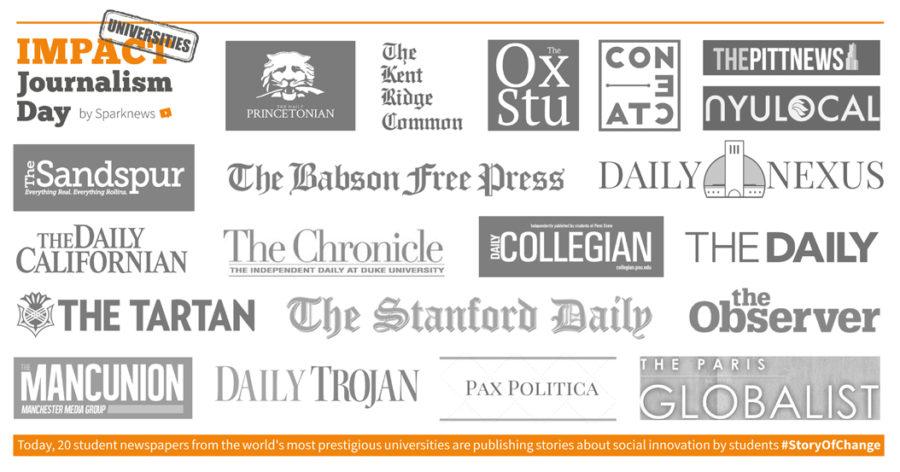Although they were initially intended to be beacons of scholarship and research, universities have also served as vessels for fostering social and political movements throughout history.
The University of Michigan was one of the first to begin protesting the American intervention in Vietnam in 1965. Student movements for women and gay rights at the University of Georgia raged in the 1960s. Students held a three-week-long demonstration against Columbia University’s investment policy in South Africa during apartheid in 1985. A similar movement at Pitt also caused the University to pull out investments that were aiding apartheid in the1980s.
The point is: students impact their universities, their communities and the country on an almost daily basis.
This year, The Pitt News teamed up with SparkNews and 19 other college newspapers across the country, in France and England to highlight student groups doing important work on our campuses. In this edition, you’ll find a story about a dedicated group of young criminologists at Pitt who investigate cold cases and information about what the Pitt Pantry is doing to address hunger on campus — an issue that’s only worsening as tuition increases. You’ll also find stories from Princeton University and New York University, where students have created an app to connect people struggling with mental health and a camp for young Palestinian refugees, respectively. You can read even more stories like these at the Impact Journalism website or at The Pitt News website.
Of course, we couldn’t fit every student group between these pages. But we’ve been covering them all year. The Fossil Free Pitt Coalition — comprised of 32 Pitt-recognized student groups — has worked to get Pitt to divest from the fossil fuel industry since 2015. In spite of pushback from the administration, the coalition is still going forward with its mission in various ways: demonstrating in the Cathedral in early December 2016 and urging the Board of Trustees to divest during a meeting in February, for example.
Late last year, more than 50 students participated in a walkout to support Pitt becoming a sanctuary campus. And a host of protests occurred in November 2016, intended to be about the election of Donald Trump or student debt — the two sometimes blurring together due to the timing.
The Student Government Board hosted a slate of events for Women’s Empowerment Week, during which the Pitt Program Council brought comedian Leslie Jones in for a night of laughs and “Pitt Tonight” dedicated an entire episode to women’s empowerment. Pitt’s Rainbow Alliance hosted its annual Pride Week 2017 in March as well, including events such as an open-mic night and a drag show.
Established, active groups including the Black Action Society, Campus Women’s Organization, the African Student Organization, the Asian Student Alliance, Active Minds, the Southeast Asian Student Alliance, the Muslim Student Association, Hillel and too many more to name, represent students’ needs on an everyday basis.
Real, impactful movements by students are not in response to a trend, and they’re not optional. These actions are serious, and at times desperate, attempts to share and educate, to right wrongs or to obtain justice. The hard work and passion of the more than 400 student organizations at this University make change happen.
Here’s a word from the coordinators of this project about the power of Impact Day Journalism — Louis Slade, Manager, Impact Journalism Day Universities and Christian de Boisredon, Founder, Sparknews.
“By writing about these innovative projects, the 20 participating student newspapers show the collective force that the media has to catalyze change. From teaching each other how to use computer science for social good, to creating platforms that crowdfund for university fees, to providing peer support for mental health, to sharing education with refugees, these stories show that students are actively challenging the notion that nothing can be done.”



